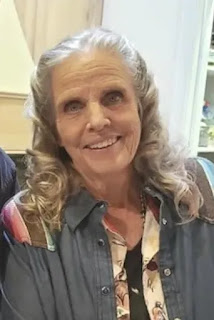 |
| Click on cover for Amazon link |
Penny Orloff, the new editor of the AAA Digest, thought this subject might be of interest to members, so I Googled it. Surprise! The Web must have several thousand suggestions. It never occurred to me there are so many options. At my age, I don’t want to start another book. So, I’ll just focus on how not to interview a celebrity, if that singer is Eartha Kitt or anyone like her.
Even though I’m old enough to remember Eartha, I had never met her before my wife and I were ushered into her dressing room where she was preparing for her performance at the Vine St. Bar & Grill in Hollywood.
Wearing a drab, unflattering, wrap-around robe and smudged sneakers, sipping red wine and smoking a cigarette, Eartha Kitt was far from a glamorous celebrity.
Her hair was pinned up at weird angles, and a makeup artist was darting in and out with brushes and eye pencils between her words—no simple task. Kitt’s words often came with machine-gun rapidity, particularly when the subject was heavy.
I had arrived with a list of questions I was anxious to ask Kitt, who was noted for delving into controversial issues, particularly racial issues.
Having just finished editing the article I had written about Eartha more than 40 years ago for the Los Angeles Times, I’m going to lift a few paragraphs from “Nostalgia: Stars of Yesteryear,” my current project nearing completion.
Before typing a word of my own, I decided to quote a poem Eartha had composed that morning. It was a perfect start for the article—an angle that hopefully would hook my readers. It did, at least, hook me.
A published author working on her third book, Kitt said she writes something every day, “even if it’s nothing.” Her poem was something. It impressed me.
“I am not white enough to pass, and I am not black enough to be. I’m caught in between. But still I have to be me.”
I don’t recall my response to the poem, or perhaps a question about it, but whatever came out of my mouth should have been left on a back burner...way back. It was an uncomfortable few moments. I thought the interview had concluded before it began.
But there was so much more she wanted to express, mostly racial inequality from using kitchen doors to perform in Las Vegas to breaking rules in South Africa. She remembered drinking champagne on stage, then passing the glass to front-row spectators, black and white, each taking sips and passing it on.
“It was not permitted,” she said, “but I did it. When you break a precedent, the precedent is broken.”
Okaaay…so what came next? The short reply: a flood of other admirable examples of how she would have liked to change the world. But it was almost show time. My wife and I found our reserved, up-front table, ordered drinks and soon, there she was—a glamourous celebrity.
Almost magically, her appearance and personality had changed as effortlessly as changing gears.
Makeup in place, hair suitably styled, a sexy, black-sequined gown and heels replacing the drab robe and sneakers, Eartha Kitt batted her lashes and began purring those familiar sounds heard for decades.
And I learned something of value that night: Save the tough questions for last, folks.










